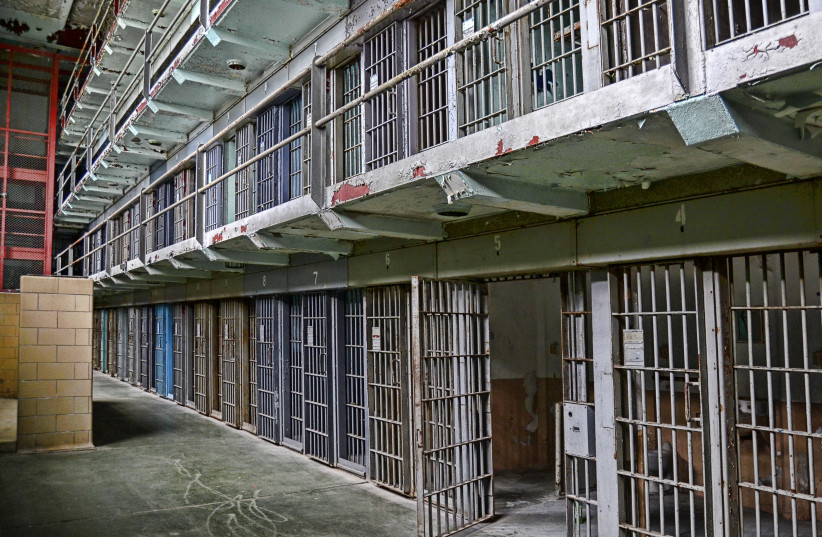Normally I would not read a book like The Goldin Calf, whose plot appears from the first page to be contrived to convey a message. “The year is 1980. Marshall Goldin, born into a financially struggling family, is now a sophomore in college. He dreams of being wealthy and he is sure he knows how to achieve his dream. Will he succeed? What does it truly mean to be rich, anyway?”
The basic theme is “If you’re Jewish, follow your parents’ advice – Don’t marry a non-Jew because look what can happen if you do!” How does this play out in the life of Marshall “Moshe” Goldin, who never “studies” in school but rather “learns” – taken from the Yiddish, “lernen,” specifically for the study of Talmud and other Jewish religious texts.
The hero, a nice Jewish boy who is a member of a non-Jewish fraternity on a US campus – one of its token Jews – falls in love with a young woman whom his parents describe in a derogatory fashion as a “shikshe” (a non-Jewish woman).
The moral of the story: If you're Jewish, listen to your parents
Because she is not one of the chosen people, Marshall has a heartbreaking separation with his girlfriend. Then antisemitism makes this “college Jew” a victim. Marshall had been asked to give a Christian girl some amphetamines to help her focus and stay up to study for her finals – but her father becomes aware that she was taking these pills.
A police chief in a New Jersey township, he decides that this “Jew-boy” has to pay heavily for giving his daughter the pills. Easily and quickly, he sets up a raid on Marshall’s fraternity house to catch the victim red-handed. A whole echelon of policemen follow the chief’s orders.

An officer enters the frat house “raid,” but he immediately climbs the stairs to the room in which Marshall studies. Our hero is petrified as the policeman opens a drawer and takes out a small container in which he finds two amphetamines. “Whose are these?” Marshall admits they are his, and off he goes to jail. His parents are appalled – they have to call a relative with money to help make bail. After the trial, Marshall is convicted and given a two-year sentence. The antisemitic police chief is angry: “Two years is nothing for this Jew who defiled my daughter.”
When Marshall arrives at prison, the officer in charge places him in a heavily guarded prison cell, not the light prison ward where he is supposed to go.
Our hero – and we are about to discover his cleverness and hidden strength – is placed in a cell with a serial killer. When they go to eat, his cell mate tells the other prisoners, “This Jew is mine.”
In the cell, the killer makes clear: “I protected you, so I can do anything I want. When the killer cell mate is ready to sexually assault Marshall, our hero devises a plan. “I am going to arise from my so-called weak appearance and show him who’s boss.”
His plan works well. He is a David, and the Goliath he faces is surprised. The cell mate is beaten to a pulp and is hospitalized. Now it is revealed how the police chief had his friend at the prison place Marshall with the killer. Hallelujah!
The next part of the book shows how Marshall, newly released from prison, is forlorn because he is rejected from every job for which he applies. Then he finds his fraternity brothers building their product as an innovative start-up to assist businesses in organizing their operating systems.
Within a few years, his fraternity brothers – with him as a partner – become millionaires, even billionaires.
The nation of Israel steps in to change Marshall’s life completely. Sent by the other partners, he goes to Israel to sell. On the way over, he meets a woman on a mission to Israel as a Hadassah board member to Israel. She gives him the number of her daughter.
Unable to sell his product to Jews, he tries another company. After the first purchase is made, the owner’s wife turns out to be his father’s long-lost sister who survived the Holocaust.
What a reunion! His last mission is to go to the Western Wall to pray and give thanks. He places a note from his partner, a Christian, into the wall. In the note, this very wealthy and successful man pleads to God to give meaning to his life. The Kotel is the only place, he feels, where he can make his plea.
Before he leaves Israel, Marshall is pleased to meet a fraternity brother in Mea She’arim whose wife, who converted to Judaism, was the woman he loved; but because she was then non-Jewish, his parents made him separate from her. He is very moved that she has become Jewish and that her faith means so much to her.
Marshall is satisfied but doesn’t stay in Israel, choosing instead to return to New Jersey and share his wealth with his parents. On his way to Israel, he had met a devoted Hadassah member who gave him the number of her daughter. But he doesn’t disclose if he called her.
The book is the first novel of author Michael N. Lerner, who grew up in New Jersey and graduated from Rutgers University with a degree in computer science before moving to Israel, where he lives with his wife and children. It is dedicated “To my dear mother, who has been a continual source of love, support and encouragement from the day I was born.” ■
The Goldin Calf
Michael N. Lerner
Self-published, 2022
lerner5721@gmail.com
